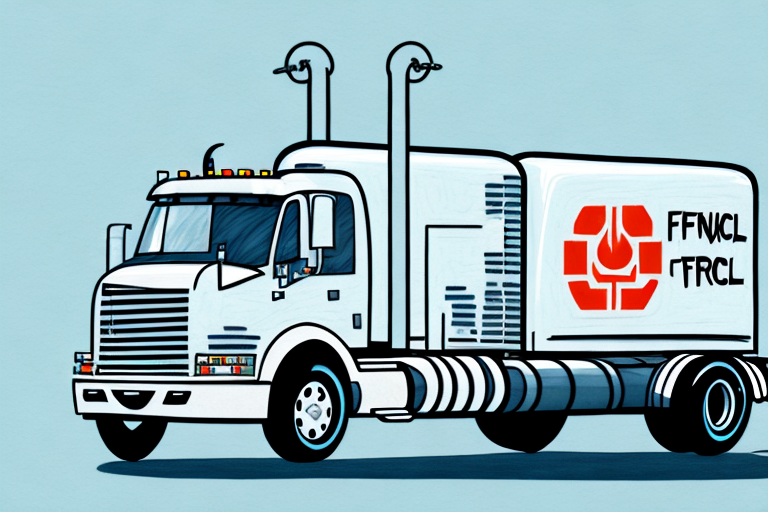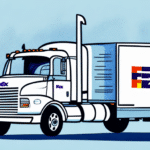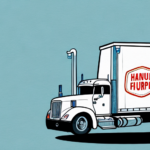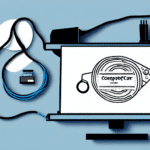Understanding OnTrac's Fuel Surcharge
In the world of shipping and logistics, fuel surcharges have become a pivotal aspect of transportation costs. These surcharges are additional fees that carriers impose to account for the fluctuating prices of fuel and the associated costs of maintaining reliable service. OnTrac, a prominent shipping carrier, also implements fuel surcharges. This article delves into the various facets of OnTrac's fuel surcharge, including its definition, determination process, and its impact on businesses.
The History and Industry Context of Fuel Surcharges
The Evolution of Fuel Surcharges
The practice of imposing fuel surcharges dates back to the early 2000s, a period marked by the global oil crisis that caused significant spikes in fuel prices. Shipping carriers began to adopt fuel surcharges as a mechanism to mitigate the financial strain caused by volatile fuel markets. According to industry reports from the Shipping Science, fuel surcharges have since become a standard practice across major shipping companies.
Industry-Wide Adoption
Today, fuel surcharges are an integral part of the shipping industry's pricing models. They provide a flexible pricing strategy that allows carriers to adjust their costs in real-time without altering their base shipping rates. This adaptability ensures sustained service reliability even when fuel prices experience significant fluctuations.
How OnTrac Determines its Fuel Surcharge
Calculation Methods
OnTrac calculates its fuel surcharge on a weekly basis, basing the percentage on the national average price of diesel fuel. This dynamic approach ensures that the surcharge accurately reflects current fuel market conditions. For the latest surcharge percentage, customers can visit OnTrac's official Fuel Surcharge page.
Factors Considered in Determination
Beyond the national diesel prices, OnTrac considers several other factors when determining its fuel surcharge:
- Shipment Distance: Longer routes typically consume more fuel, impacting the surcharge.
- Package Weight and Size: Heavier and larger packages require more fuel, thereby increasing the surcharge.
- Mode of Transportation: Different transportation modes have varying fuel efficiencies, affecting the surcharge calculations.
By evaluating these factors, OnTrac ensures a fair and transparent surcharge system that aligns with the actual costs incurred.
Impact on Customers
Calculating Your Shipment's Fuel Surcharge
Determining the fuel surcharge for your shipment with OnTrac involves a straightforward process:
- Determine the Base Shipping Rate: Identify the standard cost for shipping your package based on distance, weight, and size.
- Apply the Fuel Surcharge Percentage: Multiply the base rate by the current fuel surcharge percentage provided by OnTrac.
- Calculate the Total Cost: Add the fuel surcharge to the base rate to obtain the total shipping cost.
For convenience, OnTrac offers a fuel surcharge calculator on their website, allowing customers to estimate their shipping costs accurately.
Customer Feedback
Customer responses to OnTrac's fuel surcharge have been mixed. While many appreciate the transparency and periodic updates to the surcharge rates, others express frustration over sudden increases. OnTrac has addressed these concerns by enhancing communication and providing detailed breakdowns of how surcharges are calculated. Feedback from reputable sources like Customer Reviews on ShipScience highlights the importance of clear communication in maintaining customer trust.
Strategies to Mitigate Fuel Surcharges
Negotiating Shipping Rates
Businesses can negotiate lower shipping rates with carriers like OnTrac to offset the impact of fuel surcharges. Building long-term relationships with carriers can provide leverage in securing more favorable terms.
Exploring Alternative Carriers
Comparing fuel surcharges across different carriers can help identify more cost-effective shipping options. Tools and resources available on ShipScience assist businesses in making informed decisions based on comprehensive data.
Optimizing Packaging
Using smaller, lighter packaging reduces the fuel required for transportation, thereby lowering the fuel surcharge. Additionally, eco-friendly packaging materials can enhance sustainability while potentially reducing costs.
Comparing Fuel Surcharges Among Carriers
Each shipping carrier employs a unique approach to fuel surcharges, balancing base rates and surcharge percentages differently. It's crucial for businesses to evaluate both aspects to determine the most cost-effective solution. While some carriers may offer lower base rates with higher surcharges, others might provide the opposite. Comprehensive comparisons, such as those found on ShipScience, can aid in selecting the best carrier that aligns with your shipping needs and budget constraints.
Future Trends in Fuel Surcharges
Shift Towards Sustainability
The shipping industry is increasingly focusing on sustainability, which may influence future fuel surcharge structures. Carriers investing in greener technologies and alternative fuels might experience changes in their surcharge models, potentially leading to more stable and lower surcharges.
Technological Advancements
Innovations such as electric delivery vehicles and the use of drones for shipping are set to transform the logistics landscape. These technologies can improve fuel efficiency and reduce reliance on diesel, potentially decreasing fuel surcharges over time. According to recent studies from ShipScience, integrating such technologies could lead to more sustainable and cost-effective shipping solutions.
In conclusion, fuel surcharges are an indispensable aspect of the shipping industry's financial framework. Understanding how OnTrac's fuel surcharge operates allows businesses to make informed decisions, optimize their shipping strategies, and mitigate associated costs. As the industry evolves with a greater emphasis on sustainability and technological innovation, fuel surcharges will continue to adapt, ensuring the balance between operational costs and customer reliability.


















